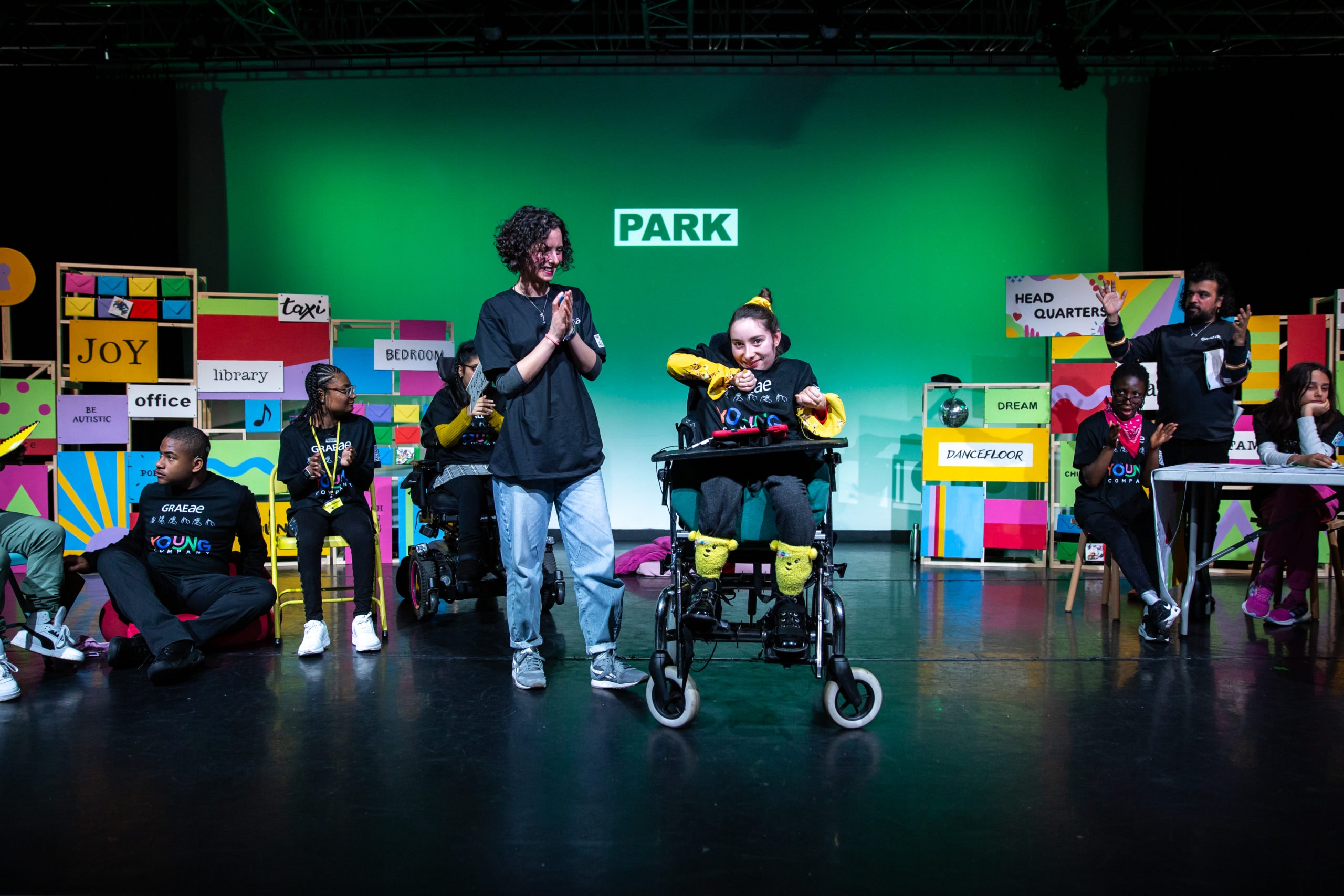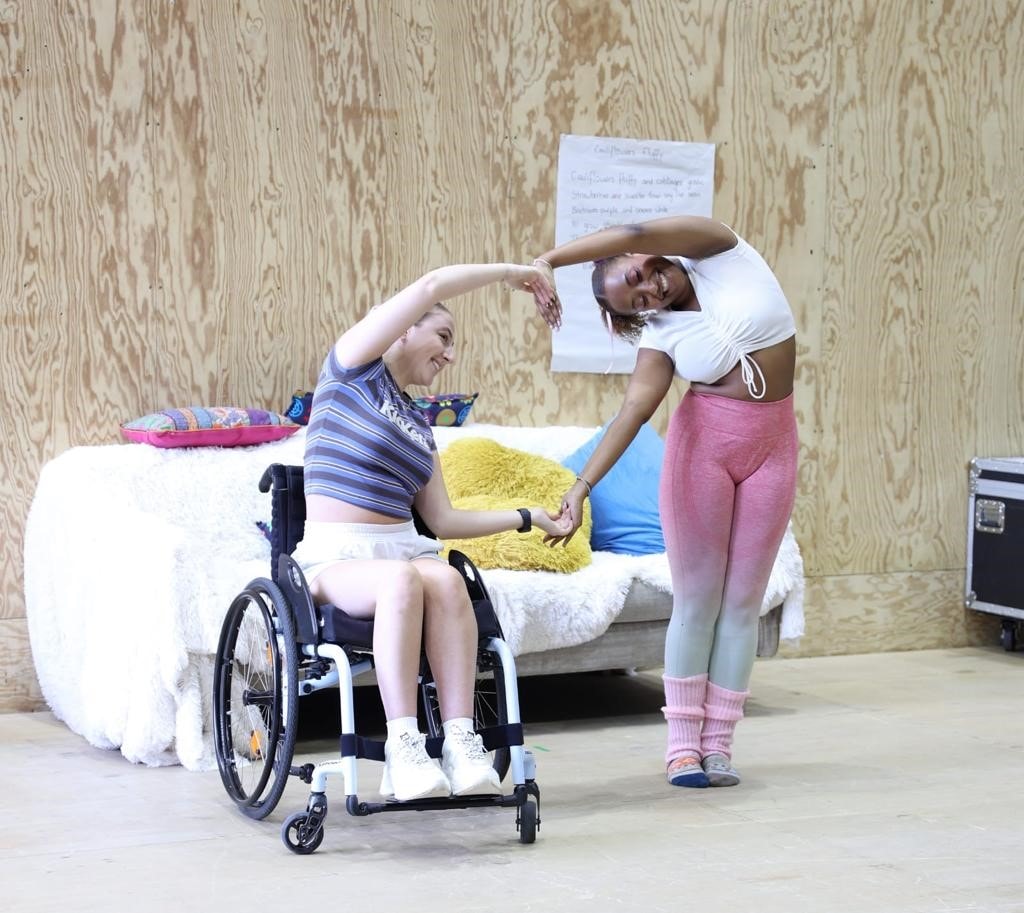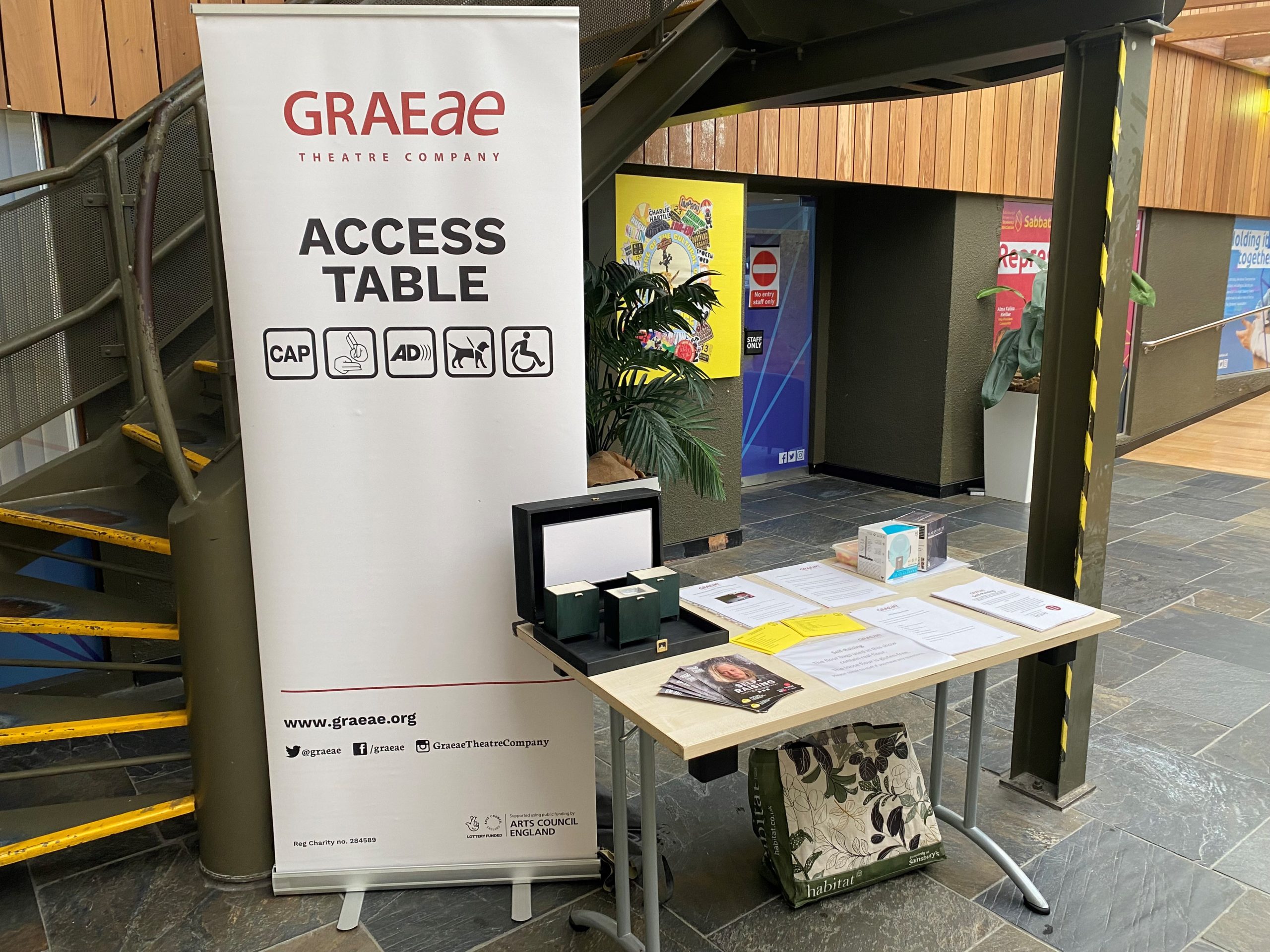Access is at the heart of all of Graeae’s work. We provide an inclusive working practice for artists and staff, and an accessible theatrical experience for our audiences. We achieve this through collaboration and consultation with disabled artists and staff – this means we can provide bespoke access solutions as required by each individual and company.
Over the last four decades, Graeae’s team have been applying their creativity
and innovation to ensuring audiences, whether they are Deaf, disabled or
non-disabled, are treated as equals. By taking functional access such as British
Sign Language, audio description and captioning and bringing it as a creative
force central to the performance, Graeae has defined a new way of telling stories
on stage. We feel it enhances the enjoyment for all audience members and we
coined the term ‘the aesthetics of access’ to describe this process.
Access Support and Guidance
Graeae can provide practical and creative access guidance for individuals and companies, including information on:
- How to gather access information from the people you work with
- Accessible/Alternative Formats for documents
- Access to Work
- Access support for receiving venues
- Media Language Guide
Access Consultancy and Training
Access is provided throughout our marketing materials, including through
British Sign Language and audio flyers. Then, from the moment audience
members arrive at a venue they can explore tactile set models, read an Easy
Read synopsis, or receive their programme in different formats. We share
our knowledge and passion with front of house and box office teams and
marketing staff across the country, providing support, sewing seeds
of change, and demystifying the process of becoming more accessible.
Graeae and the Social Model of Disability
At Graeae, we use the social model of disability to frame the way in which think and talk about Deaf, disabled and neurodivergent people. The social model was developed by disabled people and has its roots in activism, built upon the understanding that people are disabled by barriers in society, not by their impairments or conditions.
This model stands in contrast to, and defiance of, the medical model of disability, where disabled people are defined by their medical condition as dependent and needing to be fixed, cured or cared for, justifying the way in which disabled people have been systematically excluded from society.
Medical Model Language
I can’t go to this play because I’m blind.
Social Model Language
I can’t go to this play because there is no audio description.
Graeae considers the social model, and use of social model terminology, to be the most empowering way of talking about disability. It tells us that it is the responsibility of society, of leadership, and of organisations, to make adaptations, adjustments and fundamental changes to make sure that all disabled people have full equality of access.
By following the social model here at Graeae, we hope to empower, to break down barriers, and advocate for equitable access across our society.
Useful Links and further information
For more information, email our Access Manager, vicky@graeae.org





